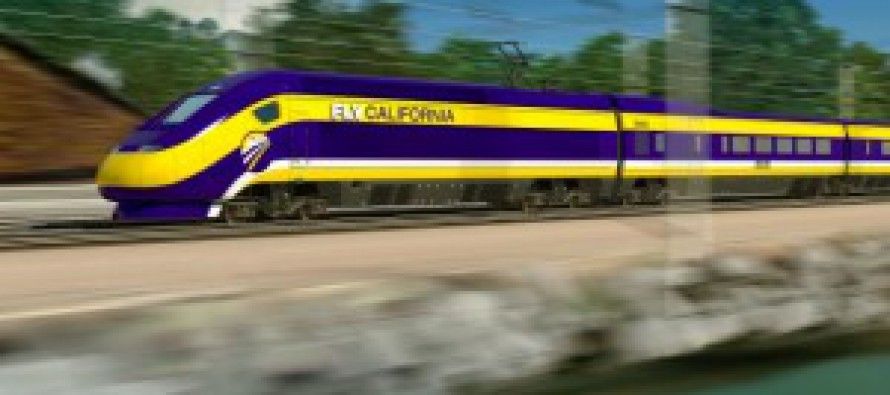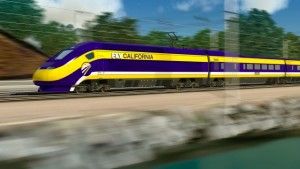Gov. Brown’s legal strategy to prop up bullet train faltering

 Last week’s decision from a state appeals court to issue a summary judgment denying the Brown administration’s unusual request to block a second trial in which Kings County and other plaintiffs challenge California’s high-speed rail project bodes terribly for the governor’s overall legal strategy. That strategy builds on the novel theory that the need to get started on a big public-works project has such overriding importance that it trumps the normal necessity of ensuring such projects comply with state law.
Last week’s decision from a state appeals court to issue a summary judgment denying the Brown administration’s unusual request to block a second trial in which Kings County and other plaintiffs challenge California’s high-speed rail project bodes terribly for the governor’s overall legal strategy. That strategy builds on the novel theory that the need to get started on a big public-works project has such overriding importance that it trumps the normal necessity of ensuring such projects comply with state law.
The second trial, now expected to proceed this summer before Sacramento Superior Court Judge Michael Kenny, will focus on whether the project’s present plan complies with Proposition 1A, the 2008 bond measure providing it with $9.95 billion in seed money — in particular the guarantee that the train get from downtown Los Angeles to downtown San Francisco in no more than two hours and 40 minutes. Kings County’s attorneys say that’s impossible with the present plan to have actual high-speed rail cars only going from northern Los Angeles County to Fresno.
Attorney General Kamala Harris had asked the judges to block the trial with an “extraordinary writ” on these grounds:
“The trial court lost sight of the purpose of the Bond Act, which is to build a high-speed-rail system that will foster the future prosperity of the State. The Bond Act must be reasonably interpreted to achieve that purpose.”
The judges concluded that the true “reasonable interpretation” was that the plaintiffs had raised genuine issues that deserved full consideration at trial.
Argument that was summarily rejected also made in other appeal
The first trial, also before Judge Kenny, dealt with the legality of the project’s financing plan and the sufficiency of its environmental reviews.
Kenny said both were inadequate and blocked the use of state bond funds until the problems were remedied.
That ruling is now being considered on an expedited basis by a state appellate court at the direction of the California Supreme Court. And what is the argument the state is using to challenge those rulings? Essentially the same argument that was rejected last week. This is from the Sacramento Bee in January:
“The administration said in a request for expedited review that ‘the trial court’s approach to these issues cripples government’s ability to function’ and could have implications for other infrastructure projects.
“The state argues the normal appeals process could take years to resolve and is ‘not a real choice.’
“‘Since the project’s inception, opponents of high-speed rail have tried to block its construction,’ the filing said. ‘Now, two rulings of the Sacramento Superior Court — which are otherwise unreviewable as a practical matter — imperil the project by erecting obstacles found nowhere in the voter-approved bond act.”
A lawyer familiar with the case mocked this argument as amounting to, “Damn the legal niceties, this mean judge is getting in our way.”
It failed last week to persuade appellate judges to delay bullet train trial no. 2. It doesn’t seem likely to persuade appellate judges to discard the results of bullet train trial no. 1.
Related Articles
CA advances transparency — but needs some work
This is Sunshine Week, a time to promote transparency in government. An AP analysis found that the Obama administration, which
Bad weather: I want my tax money back!
Aug. 17, 2012 By John Seiler The only reason anyone in his right mind lives in California and pays massive




